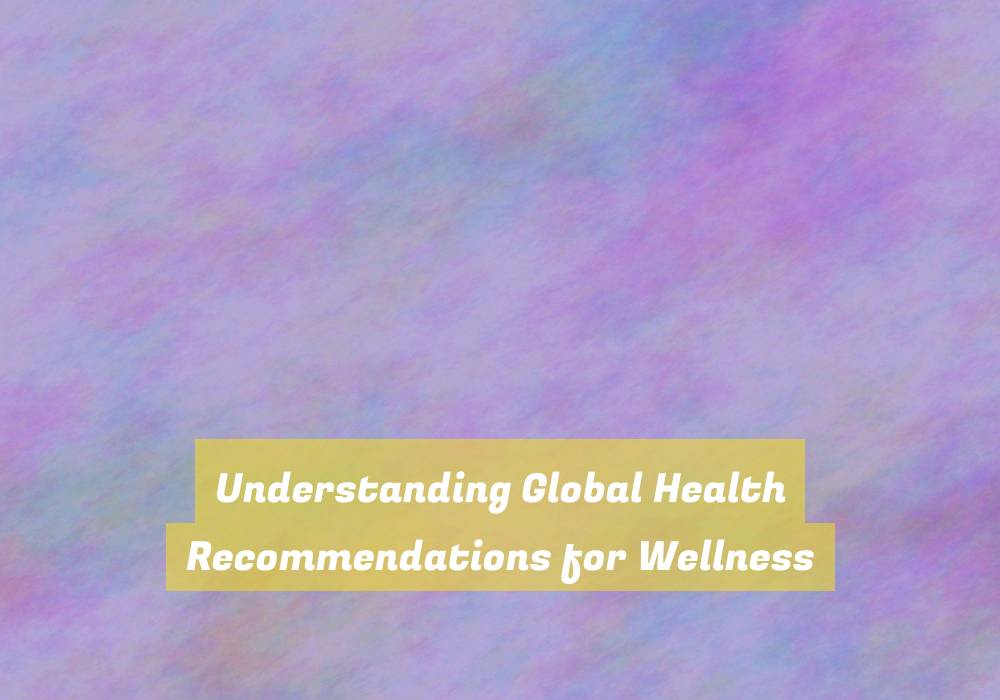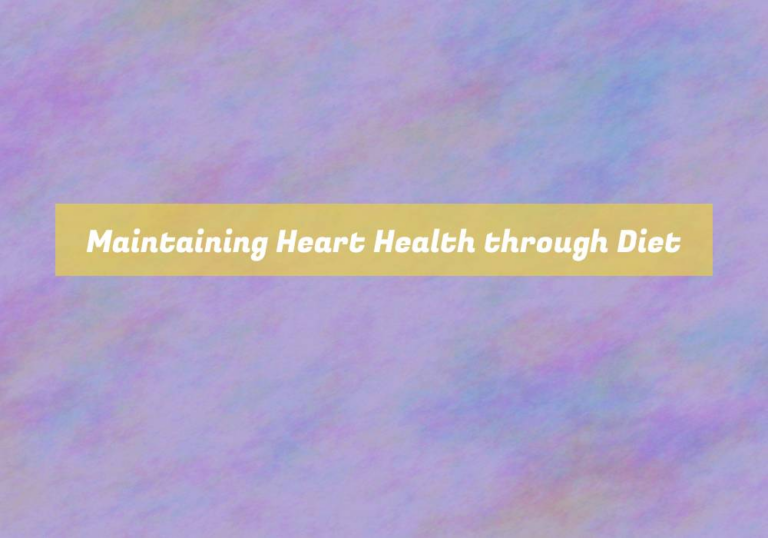Understanding Global Health Recommendations for Wellness
In the vast landscape of global health, navigating the recommendations for wellness can often feel like deciphering a complex puzzle. With the ever-evolving understanding of what constitutes a healthy lifestyle, itG??s easy to become overwhelmed by the sheer volume of information available.
But fear not, for within this discussion lies the key to unlocking a harmonious and balanced approach to your well-being. From the intricacies of physical activity to the nuances of preventive care, uncovering the global health recommendations for wellness holds the power to transform your life in ways you never thought possible.
Importance of Physical Activity
Engaging in regular physical activity is crucial for maintaining overall wellness and reducing the risk of chronic diseases. By incorporating exercise into your daily routine, you can enhance your cardiovascular health, strengthen your muscles and bones, and improve your mental well-being. Whether itG??s going for a brisk walk, participating in a group fitness class, or engaging in sports, finding activities that you enjoy can significantly impact your physical and mental health.
Regular physical activity not only helps in managing weight and reducing the risk of obesity but also plays a key role in preventing conditions such as heart disease, diabetes, and stroke. It can also boost your immune system, making you more resilient to illnesses. Moreover, engaging in physical activity releases endorphins, which can elevate your mood and reduce feelings of stress and anxiety.
Incorporating at least 150 minutes of moderate-intensity exercise or 75 minutes of vigorous-intensity exercise per week is recommended by global health organizations. This can be broken down into shorter sessions throughout the week, making it achievable for individuals with busy schedules. Prioritizing physical activity in your daily life is a vital step towards maintaining optimal wellness.
Nutritional Guidelines for Wellness
To achieve optimal wellness, itG??s essential to prioritize a balanced and nutritious diet that provides the necessary nutrients for your bodyG??s functioning. Your nutritional intake plays a crucial role in your overall well-being. ItG??s important to focus on consuming a variety of foods from all food groups, including fruits, vegetables, whole grains, lean proteins, and healthy fats. Aim to limit the intake of processed foods, sugary beverages, and high-fat, high-sugar snacks. Moderation is key – enjoy your favorite treats in small portions while emphasizing nutrient-dense choices.
In addition to food choices, pay attention to portion sizes. Even healthy foods can lead to weight gain if consumed in excessive amounts. Be mindful of your bodyG??s hunger and fullness cues to avoid overeating. Hydration is equally important. Make water your primary beverage and limit the intake of sugary drinks and alcohol.
ItG??s also beneficial to plan your meals and snacks ahead of time to ensure that you have access to nutritious options throughout the day. This can help prevent impulsive, unhealthy food choices when hunger strikes. Prioritizing a well-rounded, nutrient-rich diet will support your overall wellness and contribute to a healthier lifestyle.
Mental Health and Well-being
How can you prioritize your mental health and well-being in your daily life?
ItG??s essential to recognize the significance of mental well-being and incorporate practices that support it. Begin by establishing a routine that includes activities beneficial for your mental health, such as mindfulness meditation, exercise, and engaging in hobbies you enjoy.
Ensure you get an adequate amount of sleep each night, as it plays a crucial role in maintaining mental well-being. Additionally, make an effort to maintain a healthy work-life balance, setting boundaries to prevent burnout and stress.
Social connections are also vital, so prioritize spending time with loved ones and building a support network. When facing challenges, donG??t hesitate to seek professional help or talk to someone you trust.
Be mindful of your thoughts and emotions, practicing self-compassion and self-care. Finally, limit exposure to negative influences, such as excessive media consumption, and focus on activities that bring joy and fulfillment.
Preventive Care for Global Wellness
Recognizing the importance of mental well-being in your daily life, itG??s crucial to also prioritize preventive care for global wellness.
Taking proactive measures such as getting regular check-ups, vaccinations, and screenings can significantly contribute to maintaining good health. By staying up to date with vaccinations, you not only protect yourself but also help prevent the spread of infectious diseases on a global scale.
Regular health screenings, such as for blood pressure, cholesterol, and certain cancers, can aid in early detection and treatment, ultimately reducing the burden of disease worldwide.
Additionally, making healthy lifestyle choices, including a balanced diet, regular exercise, and stress management, plays a key role in preventing non-communicable diseases that have a global impact. Engaging in regular physical activity not only benefits your personal well-being but also contributes to the overall global health profile.
Prioritizing preventive care not only supports your own health but also contributes to the larger goal of achieving global wellness for all.
Conclusion
Now that you understand the global health recommendations for wellness, itG??s time to take action.
Incorporate physical activity into your daily routine, follow nutritional guidelines, prioritize your mental health, and stay on top of preventive care.
By making these small changes, you can improve your overall well-being and contribute to global wellness.
ItG??s up to you to take charge of your health and make a positive impact on the world.







You’ve brought up an insightful point about the complexity of navigating global health recommendations, particularly concerning wellness. The overwhelming amount of information can indeed feel like diving into a swirling ocean of conflicting advice and trendy fads. I appreciate how you emphasize the importance of finding a harmonious approach to well-being, which, as you’ve highlighted, is essential in our often chaotic lives.